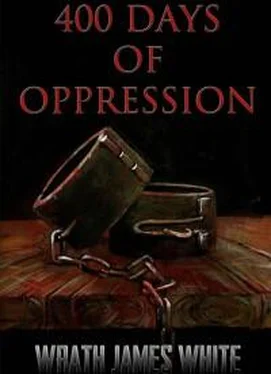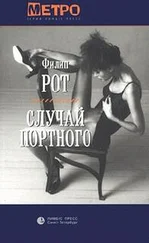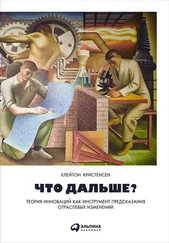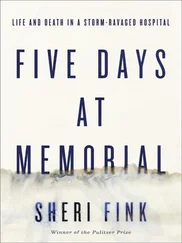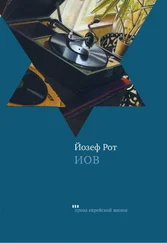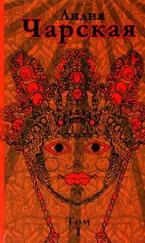400 Days of Oppression
Wrath James White
It was the last day of school. The bell rang, signaling the end of another grade and the beginning of three joyous months of summer. Kids flooded from the old, red-brick middle school building like a swarm of ants from a poisoned nest. Smiles were the dominant expression but not the only ones. There were fights, kids making the most of their last opportunity to settle year-long scores, the haunted expressions of those who had received bad report cards and were terrified at the thought of what their parents would do to them when they got home. A mix of emotions from outrage to apathy painted the features of the students who’d learned they needed to attend summer school to complete the grade and those who learned they would not graduate to the next grade no matter what they did.
Notes were passed and dates were hurriedly made. Girls and boys exchanged phone numbers, promising to stay in touch over the summer. There were a few tearful goodbyes from kids who had graduated and were moving on to different high schools. Kenyatta was one of the latter. He turned fourteen this year. He would be entering the ninth grade at Creative and Performing Arts High School in the fall. This was his last chance to tell Christie how he felt about her or he would likely never see her again.
Kenyatta was in love. His teenage hormones and emotions were a raging wildfire within him. He felt like he was losing his mind. He’d been walking Christie home from school each day for the last six or seven weeks. Ever since he found out she’d told someone that, if she ever dated a black boy, it would be him. He’d been deeply flattered, but it was more than that. He was interested and soon that interest became an obsession.
Christie was pretty, adorable, so different from the hardened hoochies in his neighborhood. She was quiet and shy. All the girls he’d grown up with were loud and obnoxious in comparison. She didn’t wear gold chains or big earrings with her name on them. There were no designer labels on her clothes. She was simple, sweet, more like the girls he saw on television who were so innocent and…white. He couldn’t help wondering if he was obsessing over her solely because of the color of her skin. That’s what his mother and his aunts would think. They hated the idea of white bitches taking all the good black men. Was his affection for Christie a reflection of his own self-hatred? He didn’t know. All he knew was ever since he’d found out she was interested in him, he wasn’t interested in anyone else.
Kenyatta was one of the most popular kids in school. He was the president of the student council, an honor roll student, and he was captain of the basketball team. He’d dated the most popular girls in school. There wasn’t a black girl in Taft Junior High who wouldn’t have fallen all over themselves to date him and many of them were much sexier than Christie. But none of them had made him feel like this before. She liked to read as much as he did, geeked out as much over the release of the next Stephen King novel as he did, loved Prince and Stevie Wonder and poetry and trips to the art museum and picnics. She was romantic and so he didn’t feel like an idiot thinking romantic thoughts about her. He had never considered dating a white girl before. Not that he was ever opposed to it or saw anything wrong with it. He had just never entertained the thought in the past. It had never occurred to him as an option. As much as the world had changed in 1995 compared to when his mom was in high school, during the height of the civil rights movement, it hadn’t changed that much in Philadelphia. The racial divides were now marked by street signs. On one side of Frankford Avenue, there were projects filled with blacks and Puerto Ricans. On the other side, were poor whites and farther down Frankford Avenue were middle and upper-middle class whites. This area was less a melting pot than an arena with teams marked by their accents and skin color.
Back then, all of Philadelphia was similarly divided. WASPS in Northeast Philadelphia. Italians and Jews in South Philly. Irish in Frankford and Fishtown. Blacks and Puerto Ricans in North and West Philadelphia. Taft Junior High was located right on the border between a black and Puerto Rican neighborhood and a middle-class white neighborhood. They all went to the same school, played on the same teams, hung out together at school. But after school, they went their separate ways. Even in the 90s, interracial relationships in Philadelphia were rare.
Kenyatta thought the young Italian girl was the most beautiful creature he’d ever seen. He couldn’t stop thinking about her and he knew she felt the same way about him. He could see it in her eyes when they hugged before parting ways at Frankford Avenue each afternoon, just on the edge of her neighborhood. This wasn’t just a casual friendship. She was into him. Today was the last day of school and Kenyatta knew he had to say something to her, had to tell her how he felt about her.
There was a knot in his throat as Kenyatta walked up the long hill with Christie. He reached out and took Christie’s hand and she gave it a squeeze, smiling awkwardly at him. They walked the rest of the way, holding hands and talking about what she was going to do over the summer, how he would get along in the new school, if he would come back to visit all his friends at Taft. Kenyatta could barely complete a thought. His mind was preoccupied by the stop sign ahead. That was where they normally hugged and said goodbye. Only, today, it would be for the last time.
“What are you thinking about?” she asked, smiling up at him with those deep dimples that looked like you could fall into them and those gray and green eyes with the halo of brown around the irises like the mouth of a volcano. A lump formed in Kenyatta’s throat and he swallowed it down. His leg was trembling.
“Uh. Um. I was just thinking about you.”
“I’m gonna miss you,” Christie said, still smiling at him, batting her long eyelashes without the slightest clue what she was doing to him.
“I love you.” The words just slipped out. There was a shocked expression on Christie’s face and Kenyatta did something else he hadn’t exactly been planning to do. He kissed her before she could answer. When their lips met, Kenyatta’s pulse skyrocketed. He was waiting to see if she’d return the kiss, push him away and slap him, scream ‘rape.’ He didn’t know what to expect. When he felt her hands on the back of his head, her lips part and her tongue dart out to meet his, every muscle in his body felt like it suddenly lost cohesion. He felt like he had no weight, as if he would float right off the sidewalk or be inhaled into Christie’s lungs with her next breath. Then, abruptly, she broke off the kiss. There were tears in her eyes when she looked at him. She said goodbye then ran to the corner across Frankford Avenue and out of his life. The pain in his chest was worse than what he felt when his grandpa died, worse than when his dog, Prince, ran away. This felt like a mortal wound, something he would never recover from. He stared after her with his mouth hanging open, the feel of her lips still burning on his, the taste of her mouth haunting his tongue. He turned and walked back down the hill toward home.
Kenyatta didn’t leave his bedroom when his mom came home that night. He sat in the room in the dark. He didn’t come down for dinner, didn’t watch TV. He just sat there, thinking about Christie and fighting back the tears. If he allowed himself to cry, he wasn’t sure he’d ever stop. When his mother knocked on his door, poked her head into his room, and asked him if he was okay, he lost the battle with his emotions and the tears rained from his eyes like a storm.
Читать дальше
